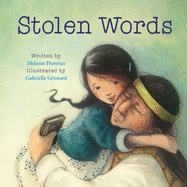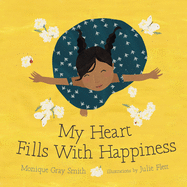Indigenous Peoples' Day (Not Columbus Day)
- Christina Dendy

- Oct 12, 2020
- 4 min read
Updated: Oct 12, 2021
It seems I write something about this each year, or at least post something about it. I'm not alone. Challenging the premise of Columbus Day is not about upending patriotism, undermining the heritage of Italian Americans, or revising history. Let's be clear: discussions of the atrocities perpetrated by and in the wake of Columbus's actions are not revisionist history. They're history. They are documented by Columbus and by many others. Their effects are observable in the course of events over the 500+ years since his first voyage to the Americas.
Columbus did not "discover" the Americas. The first people to discover and settle the Americas came here more than 10,000 years ago. Archaeological evidence has long suggested that they came by land bridge from Asia during the last Ice Age but evidence also exists that migrants came by sea from the Pacific Islands. Genetic evidence has shed further light on these theories.
Over thousands of years, they spread across the Americas, from their coldest, harshest extremities to their most fertile plains and lush forests, from mountains to deserts. They developed diverse cultures and some built rich civilizations. They built thousands of miles of roadways and public works that rivaled those of ancient peoples like the Sumerians, Egyptians, Nubians, Greeks, Romans, Harappans, and Chinese. Some studied the stars and developed some of the most accurate calendar systems before the modern era. They traded, too, with networks that spanned the length and width of the continents--much as peoples in Africa, Asia and Europe did. They also warred against one another, and their societies, like those of most of humanity, were fraught with atrocity and tragedy as well as innovation and accomplishment.
Columbus was not even the first European to set foot in the Americas. Archaeological and historical evidence has since proven that the Vikings beat him to it. The difference? The Vikings did not stay long (though there's some date about that), and they did not usher in a wave of European conquest that led to genocide, the trans-Atlantic slave trade, and the largest wave of colonization-turned-nation-building-spurring-immigration in history. That dubious distinction, yes, belongs to Columbus. Columbus, like others before and after him, accomplished impressive feats. He undertook great risk. He, without doubt, changed the course of history (though arguably, every person in existence does so to some degree).
When thinking about Christopher Columbus, and others, I often recall this remarkable statement by the wise wand-maker and -purveyor of the Harry Potter books: Mr. Ollivander: "After all, He Who Must Not Be Named did great things – terrible, yes, but great.”
We can recall and examine the great things that historical figures have done, but we do all peoples, past and present, a disservice by ignoring the intentions, quality and varying consequences of those deeds. The brilliance of the Harry Potter books (present controversy stirred by J. K. Rowling, which merits a comparable examination, aside) is the richness of their underlying humanity with all our interwoven layers of moral, emotional and other complexities--the little tidbits like Ollivander's statement that convey a fundamental truth that warrants reflection. The characters, the author, like all of us, are flawed, but the truths--they are literary vectors that can point us toward our better selves. They are, incidentally if not deliberately, allegorical.
I'm rambling. Rather than continue on the history of Columbus, the controversy about his legacy, and the arguments in favor of ending Columbus Day and instituting Indigenous Peoples' Day, which I do support, rather than lamenting the improving but still insufficient narration of the events that led to and followed the founding of this and other nations in the Americans, which I have done and will do again, I'm simply going to point you in the direction of some mind-broadening, heart-widening literature that celebrates indigenous cultures. Instead of idolizing a man who, like many, even in his time, was hero only to a few, and was re-made into a hero for myriad sociopolitical and cultural reasons centuries later, perhaps we can pause to learn a little more about the actual history and spend some time experiencing the voices, art and culture of the true discovers of the Americas and their descendants.
Some wonderful recent and a few older children's book titles
We Are Water Protectors, written by Carole Lindstrom, illustrated by Michaela Goade
We Are Grateful: Otsaliheliga, written by Traci Sorell, illustrated by Frane Lessac
Fry Bread: A Native American Family Story, written by Kevin Noble Maillard, illustrated by Juana Martinez-Neal
My Heart Fills with Happiness, written by Monique Gray Smith, illustrated by Julie Flett
Stolen Words, written by Melanie Florence, illustrated by Gabrielle Grimard
The Legend of the Bluebonnet: An Old Tale of Texas, written and illustrated by Tomie dePaola
The Girl Who Loved Wild Horses, written and illustrated by Paul Goble
Two Roads, by Joseph Bruchac
Diamond Willow, by Helen Frost
At the Mountain's Base, written by Traci Sorell, illustrated by Weshoyot Alvitre
Talking Leaves, by Joseph Bruchac
The Talking Earth, by Jean Craighead George
Some links to more great reads from and about indigenous peoples
Some informative links on history and current events
You can also explore online exhibits at the National Museum of the American Indian and join a discussion panel on Indigenous Peoples' Day.
Also, these historical texts perhaps lend more insight into the events of European exploration and colonization as well as later U.S. policies toward native peoples:
A Young People's History of the United States: Columbus to the War on Terror (Howard Zinn)
An Indigenous Peoples' History of the United States (Roxanne Dunbar-Ortiz)
1491: New Revelations of the Americas Before Columbus (Charles C. Mann)
Short Account of the Destruction of the Indies (Bartolome de las Casas)
Trail of Tears: The Rise and Fall of the Cherokee Nation (John Ehle)























Comments